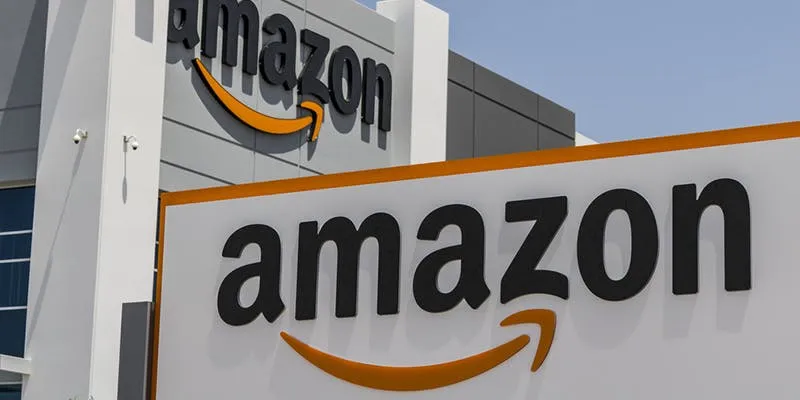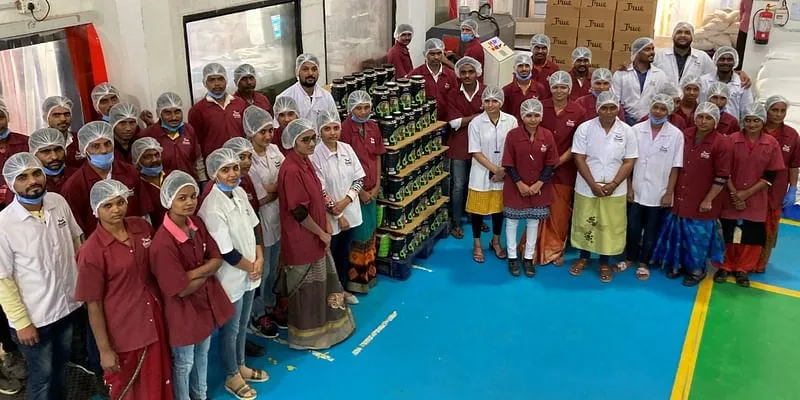Meet the 10 startups shortlisted for the Amazon Global Selling Propel Accelerator
10 startups have been chosen for the Amazon Global Selling Propel Accelerator, which aims to provide startups an opportunity to get mentorship from Amazon leaders, VCs, and leaders from Startup India.
India has announced 10 startups as finalists for their Amazon Global Selling Propel Accelerator programme launched in partnership with Startup India. The programme is aimed at supporting startups to reach customers around the world.

Representational Image
According to the official statement, the accelerator programme is aimed at providing startups an opportunity to get mentorship from Amazon leaders, VCs, and leaders from Startup India.
“We got a phenomenal response to the programme, with over 500 entries within 2.5 weeks of launch. It is a great opportunity for Indian startups to showcase their ‘Made in India’ innovation and entrepreneurial spirit at an international scale, and create a truly global consumer brand and we are humbled to be a part of their journey,” said Abhijit Kamra, Director, Global Trade at Amazon India.
He explained that with the programme, Amazon is looking to make exports simple and accessible to businesses of all sizes and achieve the goal of enabling $10 billion in ecommerce exports from India by 2025.
The company also revealed that the shortlisted businesses will also get an opportunity to showcase their proposition to partner VC firms such as Sequoia Capital India and Fireside Ventures, and get an opportunity to win a total equity-free grant of $50,000 from Amazon.
The finalists
Here is the list of 10 startups which made it to the finals of the Amazon Global Selling Propel Accelerator programme:
Azani Active
Bengaluru-based Azani Active is a high-performance nutrition and personal care brand created by athletes, nutritionists, and fitness experts. Founded in 2018 by Siddharth Suchde, the startup wants to democratise access to high quality nutrition and body care products at affordable prices.
The brand looking to expand its offerings across geographies, including North America and Europe, Middle East, and Australia markets.
D’Moksha Homes
Launched in 2019 by Nimisha and Manav Dhanda, Mumbai-based D’Moksha is an eco-friendly home linen brand that offers handcrafted, environment-friendly home linen made with sustainable fabrics like hemp.
The startup listed on Amazon with fulfilment for the US, Mexico and Canada markets, and D’Moksha Homes now plans to enter the Japanese, West Asian, and European markets.
Jaipur-based Femora was launched in 2019 by Manushree Khandelwal. The kitchenware brand offers utensils and storage products. It focuses on innovative solutions for changing consumer needs via its wide range of products. The brand aims to expand into the international market, beginning with the UAE and then growing to other global markets.
Launched in 2018, Delhi-based Rage Coffee is involved in the manufacture, marketing and distribution of coffee products. According to the official statement, its products include a proprietary batch of crystallised instant coffee infused with six plant-based vitamins.
The brand aims to become a global coffee brand known for its innovation and is planning to enter the US and European markets.
Sirona

Mohit Bajaj (L) and Deep Bajaj (R), founders at PeeBuddy. Also pictured: a PeeBuddy pack (top right) and Sirona (bottom right)
New Delhi-based Sirona, founded in 2015 by Deep and Mohit Bajaj, is a feminine hygiene brand that launched products such as stand-and-pee device (PeeBuddy) for women, natural period pain patches for menstrual cramps (Sirona), natural-coloured pads, menstrual cups, and tampons.
PeeBuddy’s success led the founders to find solutions for other unaddressed problems faced by women. The brand is now looking to expand aggressively in India and the US, followed by the UK, Germany, Singapore, Dubai, and Australia.
Gurugram-based Slurrp Farm is a healthy food brand aimed at young children to ensure a positive impact on their health outcomes. Founded in 2016 by Shauravi Malik, Umang Bhattacharya, and Meghana Narayan, the startup offers nutritious food mixes such as cereals, porridges, pancake mixes, cake mixes, and alternative sugars like jaggery and coconut sugar.
The startup is now looking to enter the global markets including UAE, Singapore, the UK, and the US.
Soulflower
Mumbai-based Soulflower, founded by Amit Sarda and Natasha Tuli in 2001, is a homegrown personal care brand that offers natural and plant-based beauty products.
Presently available in the US, UAE, UK, Singapore, and Saudi Arabia, the startup is now looking to enter Japan, Australia, and Canada.
True Elements
Mumbai and Pune headquartered in True Elements offer plant-based, wholefood breakfast, and snack products. Founded by Puru Gupta and Sreejith Moolayil in 2014, the startup aims to raise awareness and make people conscious about their health.
True Elements is planning to enter the US, Japan and West Asian markets.

True Elements Team
Why Wait
Gurugram-based Why Wait was launched in 2013 by Amandeep Singh. It is a hygiene and personal care brand that offers skincare, hair care, and body care products, made from herbal and natural ingredients.
It is now looking to enter North America, Asia Pacific, Europe, Latin America, West Asia, and Africa markets.
Wellbeing Nutrition
Mumbai-based Wellbeing Nutrition was launched in 2019 by Avnish Chhabria. It is an organic certified, plant-based vitamins, and wholefood nutrition supplements brand.
Wellbeing’s products are available for six major lifestyle areas, including daily wellness, sleep, headaches, gut health, hair loss, and skincare. The startup is now looking to enter the US, the UK, UAE, and EU markets.
Edited by Teja Lele





![[Funding alert] Pune food startup True Elements raises Rs 10Cr from Maharashtra State Social Venture Fund](https://images.yourstory.com/cs/2/b87effd06a6611e9ad333f8a4777438f/Imageojld-1610382103333.jpg?fm=png&auto=format&h=100&w=100&crop=entropy&fit=crop)




